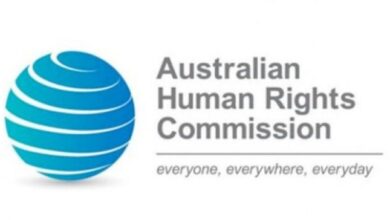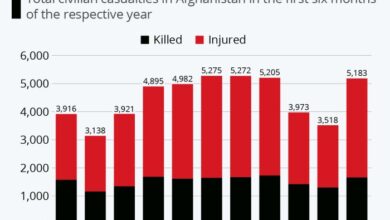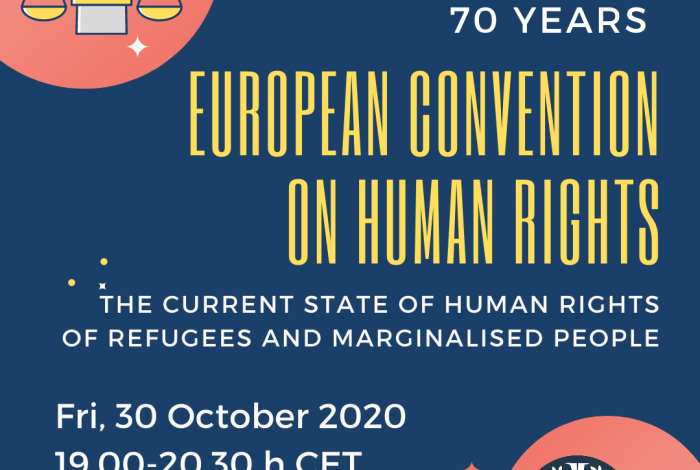
Europe and Human Rights: A Journey Through History and Challenges
Europe and human rights are intertwined, forming a complex tapestry woven with threads of history, law, and social progress. From the ancient Greek philosophers to the modern-day European Union, the pursuit of human rights has been a defining force in Europe’s journey.
This blog explores the evolution of human rights in Europe, examining the key issues, challenges, and future prospects in this ever-evolving landscape.
We will delve into the historical context of human rights in Europe, tracing its development from ancient Greece to the present day. We will analyze the impact of key events such as the Enlightenment, the French Revolution, and World War II on human rights.
We will also explore the development of international human rights law in Europe, including the European Convention on Human Rights.
Historical Context of Human Rights in Europe
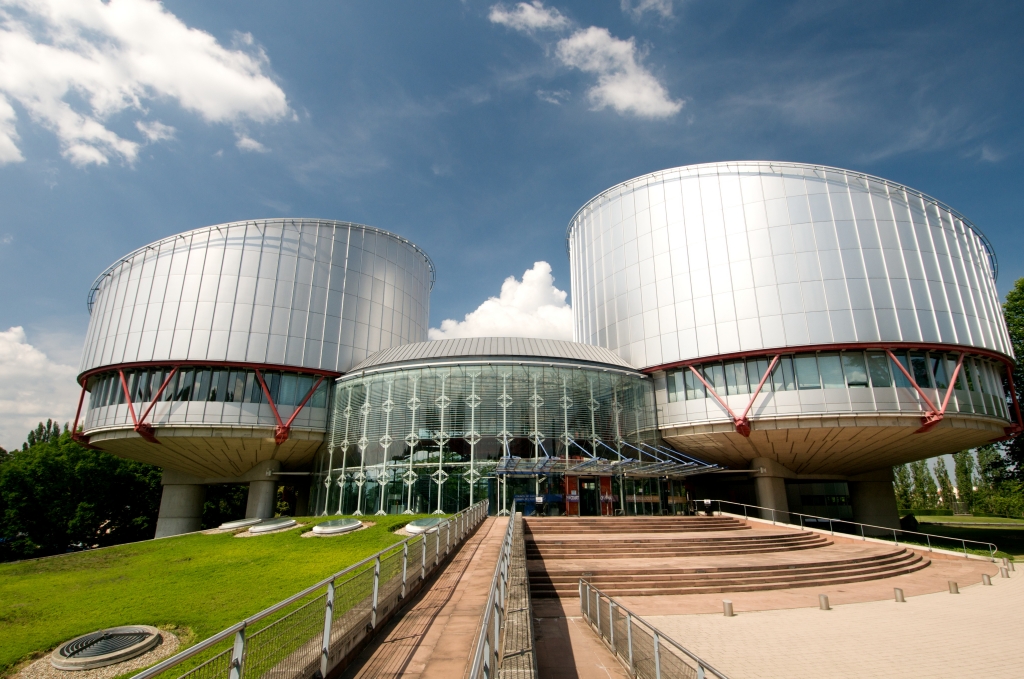
The concept of human rights in Europe has a long and complex history, evolving from ancient philosophical ideas to modern international legal frameworks. It is a story marked by both progress and setbacks, with key historical events shaping the understanding and implementation of human rights.
Ancient Greek Influences
Ancient Greek philosophers like Aristotle and Socrates laid the foundation for the concept of natural rights, emphasizing the inherent dignity and worth of all individuals. Their ideas, emphasizing reason, justice, and equality, contributed to the development of Western legal and political thought, influencing subsequent generations.
The Enlightenment and the French Revolution
The Enlightenment, a period of intellectual and cultural ferment in the 18th century, further advanced the concept of human rights. Philosophers like John Locke, Jean-Jacques Rousseau, and Immanuel Kant articulated the idea of natural rights, including the right to life, liberty, and property.
These ideas had a profound impact on the French Revolution, which enshrined the principles of liberty, equality, and fraternity in the Declaration of the Rights of Man and of the Citizen (1789). This document became a cornerstone of modern human rights law, influencing the development of similar declarations and constitutions across Europe and the world.
Europe has a long and complex history with human rights, from the Universal Declaration to the ongoing challenges of migration and integration. It’s a constant conversation, a push and pull between progress and setbacks. To understand the current state of human rights in Europe, it’s crucial to consider the broader context of what is going on now, like global political shifts and economic uncertainties.
These factors inevitably influence how European nations approach human rights issues and how effectively they can protect them.
The Development of International Human Rights Law
Following World War II, the horrors of the Holocaust and other atrocities led to a renewed focus on human rights and the need for a universal framework to protect them. The Universal Declaration of Human Rights (UDHR), adopted by the United Nations in 1948, established a common standard of achievement for all peoples and nations.
The European Convention on Human Rights
The European Convention on Human Rights (ECHR), adopted in 1950 and entered into force in 1953, was a landmark achievement in European human rights law. It established a system of international legal protection for human rights, including the right to life, freedom from torture, freedom of expression, and the right to a fair trial.
The ECHR created the European Court of Human Rights, which has played a significant role in upholding human rights standards across Europe.
Key Human Rights Issues in Europe: Europe And Human Rights
Europe, despite its commitment to human rights, faces a multitude of challenges that threaten the well-being and dignity of its citizens. This section will delve into some of the most pressing human rights issues in Europe, examining their impact on individuals and society as a whole.
Discrimination and Inequality
Discrimination and inequality remain pervasive issues in Europe, impacting various groups based on their race, ethnicity, religion, gender, sexual orientation, and disability. These inequalities manifest in different ways, including limited access to education, employment, healthcare, and housing.
- Racial Discrimination: Racial discrimination persists in Europe, particularly against people of color and minority ethnic groups. This can be seen in the form of hate crimes, police brutality, and limited opportunities in education and employment.
- Gender Inequality: Despite progress, gender inequality remains a significant challenge in Europe. Women continue to face discrimination in the workplace, with lower pay, limited opportunities for leadership positions, and higher rates of violence.
- LGBTQ+ Rights: While some European countries have made significant strides in LGBTQ+ rights, others still struggle with discrimination and violence against individuals based on their sexual orientation and gender identity.
The Impact of Migration and Refugee Crises
Europe has experienced several waves of migration and refugee crises in recent years, posing significant challenges to its human rights framework. These crises have highlighted the need for effective policies that balance the protection of human rights with the management of migration flows.
- Access to Asylum and Protection: Refugees and asylum seekers often face difficulties accessing asylum procedures and protection, leading to prolonged periods of uncertainty and vulnerability.
- Detention and Human Rights Violations: The detention of migrants and refugees, often in overcrowded and unsanitary conditions, has raised concerns about human rights violations, including the denial of access to legal assistance and fair treatment.
- Exploitation and Trafficking: Migrants and refugees are often vulnerable to exploitation and trafficking, particularly in situations where they lack legal status or access to support services.
Comparison of Human Rights Records
While Europe as a whole is committed to human rights, there are significant variations in the human rights records of different countries. Some countries have consistently ranked high in human rights indexes, while others face challenges in upholding fundamental freedoms.
- Scandinavian Countries: Countries like Norway, Sweden, and Denmark consistently rank among the top performers in human rights indexes, demonstrating strong commitments to freedom of expression, equality, and social justice.
- Eastern European Countries: Some Eastern European countries have faced challenges in upholding human rights, particularly in areas such as freedom of the press, LGBTQ+ rights, and minority rights.
- Central European Countries: Central European countries present a mixed picture, with some countries making progress in human rights while others face challenges in areas such as judicial independence, freedom of assembly, and the protection of minorities.
European Union and Human Rights
The European Union (EU) plays a crucial role in promoting and protecting human rights within its member states. The EU’s commitment to human rights is enshrined in its founding treaties and is a core principle of its internal and external policies.
The European Union’s Role in Promoting and Protecting Human Rights
The EU promotes and protects human rights through a variety of mechanisms, including:
- Legislation:The EU has adopted a number of directives and regulations that aim to ensure the protection of fundamental rights, such as the Charter of Fundamental Rights of the European Union, which has been legally binding since 2009. This Charter guarantees a wide range of rights, including the right to life, liberty, and security of person; the right to freedom of movement and residence; the right to freedom of expression and information; and the right to non-discrimination.
- Financial instruments:The EU provides financial assistance to member states and other countries to support human rights initiatives. For example, the EU’s human rights and democracy program supports civil society organizations working to promote human rights in various parts of the world.
- External relations:The EU uses its diplomatic weight to promote human rights in its relations with third countries. The EU’s human rights strategy sets out its commitment to promoting and protecting human rights globally, including through dialogue, sanctions, and other measures.
- Monitoring and reporting:The EU regularly monitors the human rights situation in its member states and in third countries. The European Commission publishes annual reports on the human rights situation in the EU, and the EU also works with international organizations, such as the United Nations, to monitor human rights globally.
Effectiveness of the European Court of Human Rights
The European Court of Human Rights (ECtHR) is an independent body that enforces the European Convention on Human Rights (ECHR). The ECHR is a legally binding treaty that protects fundamental rights, including the right to life, freedom from torture, and freedom of expression.
The ECtHR has played a significant role in upholding human rights standards in Europe. It has issued numerous judgments against member states for violating the ECHR, and its decisions have contributed to raising awareness of human rights issues and promoting the development of human rights law in Europe.
Impact of EU Policies on Human Rights in Member States, Europe and human rights
EU policies have a significant impact on human rights in member states. For example, the EU’s acquis communautaire (body of EU law) includes provisions on non-discrimination, freedom of movement, and the right to asylum. These provisions have contributed to improving the protection of human rights in member states.
However, there have also been concerns that EU policies can sometimes have a negative impact on human rights. For example, some critics argue that EU policies on migration and asylum have led to the detention of asylum seekers and the violation of their rights.
Examples of EU Policies and Their Impact on Human Rights
- The EU’s asylum policy:The EU’s Common European Asylum System (CEAS) aims to ensure a common approach to asylum across the EU. However, the CEAS has been criticized for its focus on border control and its failure to adequately address the needs of asylum seekers.
Europe has a long history of advocating for human rights, but the reality on the ground is often more complex. The devastating effects of conflict, like the effects of bombing on the environment , directly impact the lives of civilians and exacerbate existing human rights issues.
This highlights the need for proactive measures to prevent conflict and protect the vulnerable populations in Europe and beyond.
This has led to the detention of asylum seekers, the violation of their rights, and the creation of a two-tier system of asylum protection in the EU.
- The EU’s anti-terrorism legislation:The EU has adopted a number of anti-terrorism measures in recent years. Some of these measures have been criticized for being overly broad and for potentially violating fundamental rights, such as the right to privacy and the right to freedom of expression.
- The EU’s trade policies:The EU’s trade policies have a significant impact on human rights in developing countries. The EU’s trade agreements with developing countries often include provisions on human rights. However, some critics argue that the EU’s trade policies have a negative impact on human rights, such as by promoting the exploitation of workers and the degradation of the environment.
Europe’s commitment to human rights is often lauded, but it’s important to remember that these rights are not always universally respected. One area where this is particularly evident is in the treatment of Muslims, with some governments and societies engaging in Islamophobia and discrimination.
This raises the question of who are “the real Muslim extremists,” as explored in this article. It’s crucial to understand that true extremism lies in the denial of basic human rights, regardless of religious affiliation, and that Europe has a responsibility to combat all forms of extremism, including those that target Muslims.
Human Rights Challenges in Specific European Regions
Europe, despite its commitment to human rights, faces a complex tapestry of challenges across different regions. While some regions have made significant progress, others grapple with persistent issues, highlighting the need for ongoing efforts to ensure the full realization of human rights for all.
Human Rights Challenges in Different European Regions
This section explores human rights challenges in different European regions. The table below provides a comparative overview:
| Region | Specific Human Rights Challenges | Examples of Human Rights Violations | Notable Developments |
|---|---|---|---|
| Eastern Europe |
|
|
|
| Western Europe |
|
|
|
| Southern Europe |
|
|
|
| Central Europe |
|
|
|
Human Rights Situation in the Balkans
The Balkans is a region in Europe with a history of conflict and instability. The region faces a range of human rights challenges, including:
| Country | Specific Human Rights Challenges | Examples of Human Rights Violations | Notable Developments |
|---|---|---|---|
| Albania |
|
|
|
| Bosnia and Herzegovina |
|
|
|
| Kosovo |
|
|
|
| North Macedonia |
|
|
|
| Serbia |
|
|
|
Future of Human Rights in Europe
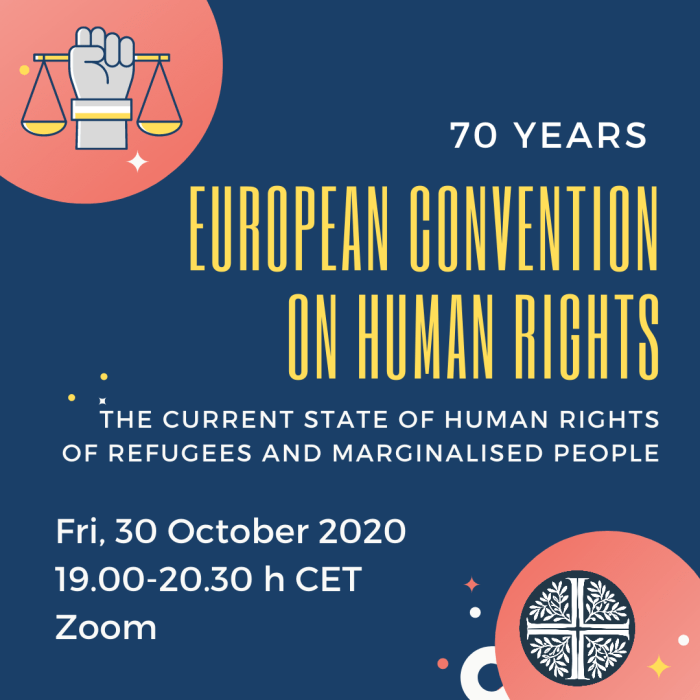
The future of human rights in Europe is inextricably linked to the evolving technological landscape and the pressing challenges of climate change. Emerging technologies, while offering unprecedented opportunities for progress, also pose significant risks to fundamental rights. Similarly, climate change impacts disproportionately on vulnerable groups, exacerbating existing inequalities and necessitating a human rights-based approach to mitigation and adaptation.
Understanding these complexities and developing effective strategies to ensure the protection and promotion of human rights is crucial.
Impact of Emerging Technologies on Human Rights
The rapid development and deployment of artificial intelligence (AI) present both opportunities and challenges for human rights in Europe. AI systems, particularly in areas like law enforcement, healthcare, and employment, have the potential to enhance efficiency and improve decision-making.
However, concerns remain about bias, discrimination, and lack of transparency in AI algorithms, which could lead to violations of human rights.
- Algorithmic Bias: AI algorithms are trained on vast datasets, which can reflect and perpetuate existing societal biases. For instance, facial recognition technology has been shown to be less accurate for people of color, potentially leading to discriminatory outcomes in law enforcement and other areas.
- Privacy and Surveillance: AI-powered surveillance systems, while potentially useful for crime prevention, raise concerns about privacy violations. The collection and analysis of vast amounts of personal data by governments and private companies can lead to intrusive monitoring and infringement on the right to privacy.
- Automation and Employment: The increasing automation of jobs driven by AI raises concerns about job displacement and economic inequality. The potential for AI to exacerbate existing inequalities requires proactive measures to ensure a just transition and safeguard the right to work.
Human Rights and Climate Change
Climate change is a defining challenge of our time, with profound implications for human rights. Extreme weather events, rising sea levels, and resource scarcity disproportionately impact vulnerable communities, exacerbating existing inequalities and leading to displacement, food insecurity, and health risks.
- Right to Life and Health: Extreme heatwaves, droughts, and floods pose direct threats to human life and health. Vulnerable populations, including children, elderly, and those with pre-existing conditions, are particularly susceptible to the health impacts of climate change.
- Right to Food and Water: Climate change disrupts agricultural systems, leading to food insecurity and water scarcity. This can exacerbate malnutrition, poverty, and social unrest, particularly in regions already facing food and water challenges.
- Right to Housing and Displacement: Rising sea levels, coastal erosion, and extreme weather events can force people to relocate, leading to displacement and loss of homes. This raises concerns about the right to adequate housing and the need for effective protection and resettlement mechanisms.
Role of Civil Society Organizations and Human Rights Defenders
Civil society organizations (CSOs) and human rights defenders play a vital role in promoting and protecting human rights in Europe. They act as watchdogs, monitoring government actions and raising awareness of human rights violations. They also provide legal assistance, support victims of abuse, and advocate for policy changes that advance human rights.
- Monitoring and Advocacy: CSOs conduct research, monitor human rights situations, and advocate for policy changes to address human rights violations. They engage with governments, international organizations, and other stakeholders to raise awareness and promote accountability.
- Legal Assistance and Support: CSOs provide legal assistance to individuals whose human rights have been violated. They also offer support services, such as counseling and shelter, to victims of abuse.
- Capacity Building and Empowerment: CSOs work to build the capacity of human rights defenders, providing training, resources, and networks to enhance their effectiveness. They also empower communities to assert their rights and participate in decision-making processes.



